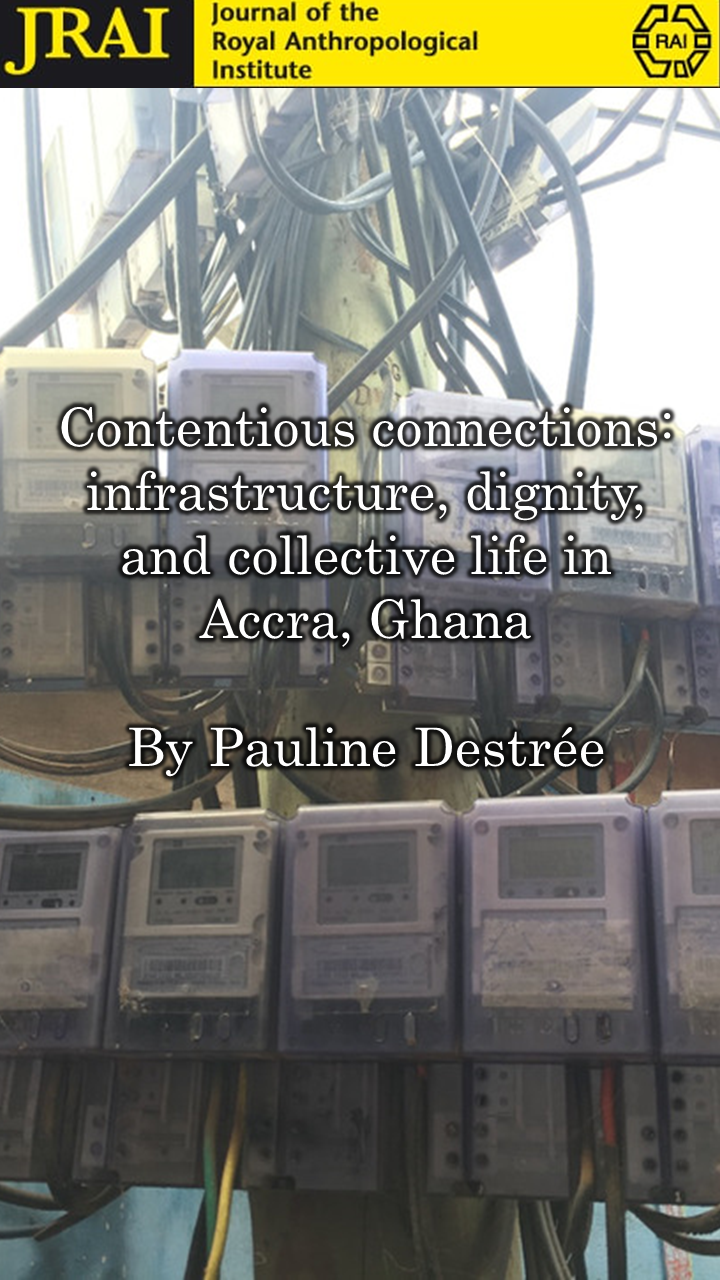Infrastructural systems have emerged as productive ethnographic sites for analysing political subjectivities and rationalities. Through the case of shared electricity and prepaid meters in the compound housing system of Accra, Ghana, I suggest that infrastructures’ political potential lies in their imaginative and hermeneutic abilities to foster desires for dignity, sustain well-being, and question moral ideals of collective life. In contrast to recent anthropological work that has emphasized the material basis of infrastructures as ‘techno-political’ devices materializing certain logics of rule and governance, I reclaim a poetics of sociality whereby infrastructures mobilize a politics of (unwanted) collective life. Through the ‘electricity stories’ circulated by tenants, I chart how the moral economy of infrastructure in a context of collective precarity redistributes marginalization and freedom in ways that always exceed political rationales of energy reforms and policies.
https://rai.onlinelibrary.wiley.com/doi/10.1111/1467-9655.13654





